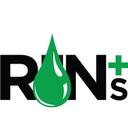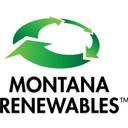New report evaluates vehicle GHG, fuel economy program
July 22, 2016
BY Ron Kotrba
On July 18, the U.S. EPA, the U.S. Department of Transportation’s National Highway Transportation Safety Administration and the California Air Resources Board issued a joint Draft Technical Assessment Report, a midterm evaluation of the national program for greenhouse gas emissions and fuel economy standards for light-duty cars and trucks.
The Draft TAR, which covers vehicle model years 2022-’25, confirms that automakers are introducing new technology to market at a fast clip, and predicts that the model-year 2022-’25 standards are attainable with a wide range of technologies.
Advertisement
Advertisement
“Despite recent EPA and California ARB compliance actions with respect to light-duty diesel NOx emissions, diesel engines remain a technology for the reduction of GHG emissions from light-duty vehicles,” the midterm evaluation states. “Advances in NOx and PM emissions control technology are bringing light duty diesels fully into compliance with Federal Tier 3 and California LEV III emissions standards at a cost that is competitive with the cost-effectiveness of other high efficiency, advanced engine technologies.”
In a press release issued by the Diesel Technology Forum, the organization’s executive director Allen Schaeffer said, “We’re extremely pleased that EPA, DOT and CARB recognize at this time especially the greenhouse gas emissions improvements in new and future clean diesel technology and fuels. Automakers and engine manufacturers have invested billions of dollars in diesel research and development to significantly improve the fuel efficiency and emissions from modern diesel vehicles. And while the Draft TAR specifically highlights advanced gasoline vehicles as being the primary source for achieving future fuel efficiency levels, we believe that new clean diesel engines will also play a key role in reaching the 2025 mileage goals.”
Schaeffer added that, “Achieving the increased fuel economy standards is going to be difficult. This is a tremendous challenge for the industry. However, today clean diesel cars average about 30 percent better fuel economy than their gasoline counterparts. In the light-duty truck sector, new clean diesel pickups are achieving higher mpg levels and for the first time a diesel pickup truck has reached the 30 mpg highway level. And as additional high-mileage clean diesel cars and pickup trucks are introduced in the U.S. we anticipate the diesel market to increase as will diesel’s role in helping achieve the future fuel efficiency standards.”
Advertisement
Advertisement
The Draft TAR states that diesel engines are continuing to evolve using technologies similar to those being introduced in new light-duty gasoline engines and heavy-duty diesel truck engines, including the use of advanced friction reduction measures; increased turbocharger boosting and engine downsizing; engine downspeeding; the use of advanced cooled EGR systems; the improved integration of charge air cooling into the air intake system; and the improved integration of exhaust emissions control systems for criteria pollutant control.
According to the draft TAR, the best brake thermal efficiency (BTE)—a measure of energy efficiency—of advanced diesel engines under development for light-duty applications is now 46 percent and thus is approaching that of heavy-duty diesel truck engines. In contrast, gasoline engines today achieve around 37 percent.
Related Stories
The U.S. EPA on Aug. 21 released data indicating nearly 2.04 billion RINs were generated under the RFS in August, up from 1.84 billion generated in August 2022. Total RIN generation for the first eight months of the year reached nearly 15.45 billion.
WestJet Group CEO Alexis von Hoensbroech, on Sept. 19 at the World Petroleum Congress in Calgary, addressed the airline's ambitions to achieve net-zero emissions by 2050 and the vital role SAF plays in the future of decarbonizing aviation.
Clean Fuels Alliance America, American Soybean Association, National Oilseed Processors Association the U.S. Canola Association are urging the Biden administration to adopt GREET for the purposes measuring GHG reductions for the SAF tax credit.
Montana Renewables LLC, a subsidiary of Calumet Specialty Products Partners LP, on Sept. 18 hosted an event to celebrate the first receipts of camelina oil into its biorefinery in Great Falls, Montana. The facility produces renewable diesel and SAF.
Global Biofuels Alliance launches at G20 Summit
President Joe Biden on Sept. 9 joined leaders of India, Argentina, Brazil, Italy, Mauritius and the United Arab Emirates to launch the Global Biofuels Alliance. The launch took place on the sidelines of the G20 Summit in New Delhi.
Upcoming Events










